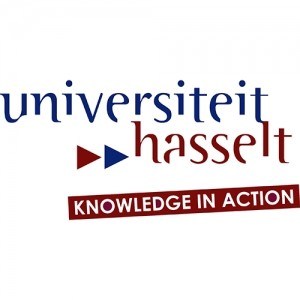Photos of university / #thefoundry_ugent
The Bachelor of Science in Accountancy at Ghent University offers students a comprehensive and in-depth education in the fundamental principles and practices of accounting, auditing, taxation, and financial management. The programme is designed to equip students with the essential skills and knowledge necessary to pursue a professional career in accounting and related fields. Throughout the three-year programme, students will engage in a combination of theoretical coursework and practical training, enabling them to understand and apply established accounting standards, interpret financial statements, and navigate complex financial regulations. The curriculum covers core topics such as financial accounting, managerial accounting, audit procedures, financial law, corporate finance, and information systems. Students will also gain insight into ethical considerations and the importance of professional responsibility in the accounting sector. The programme emphasizes the development of analytical thinking, problem-solving, and effective communication skills, essential for advising clients and making strategic financial decisions. Additionally, students will have opportunities for internships and collaborations with industry professionals, providing valuable real-world experience and networking opportunities. Ghent University’s Accountancy programme prepares graduates for careers in accounting firms, financial departments of corporations, governmental agencies, and consultancy services. Graduates will also be well-positioned to pursue further certifications such as the Certified Public Accountant (CPA) or Chartered Accountant credentials. The programme is committed to fostering academic excellence, innovation, and lifelong learning, aiming to produce highly qualified professionals capable of contributing to the evolving demands of the global financial landscape.
General Courses
- Strategic Management
Courses Related to the Main Subject
- Audit
- Management Control
- International Financial Reporting Standards
- Research Methods in Accounting
- Consolidation
- International Standards on Auditing
- Accounting in Practice
Elective Courses
- Work Placement [nl]
- Research Methods in Corporate Finance
- Valuation and Financial Risk Management
- Advanced Corporate Finance
- Advanced Financial Statement Analysis
- Consumer Behaviour
- Market Research Methods
- Business and International Marketing
- Marketing Communication
- Business Development and Strategic Selling
- Digital Marketing
Requirements
- The course is open to students with at least a bachelor's degree
- Reference letters
- A TOEFL-TEST with a minimum score of 90 (internet-based). Test participants should specify the "institution code" 2643 for UGent and 0749 for KULeuven, so that the score can be sent directly to the university.
- An original 'academic test report form' (TRF) from IELTS with a minimum overall band score of 7.0.
- A certificate awarded by the Ghent University Language Centre confirming proficiency in English, CEF-level B2
- Certificate Practical English 5, Upper-Intermediate Academic English or Preparing for an English test, issued by the Ghent University Language Centre.
- Cambridge-ESOL: First certificate in English (FCE)
- Enrollment fee of Ghent University for academic year 2016-2017 is 890 € for EER-students and students from OESO-DAC-list (developing countries), all other students pay an enrollment fee of 5330 €
The financing studies for the Accountancy program at Ghent University primarily encompass a combination of tuition fees, government grants, scholarships, student loans, and personal funding options. Tuition fees are structured according to the student's residency status, with EU and EEA students benefiting from reduced or standard rates, while non-EU students may face higher fees. The university's official website provides detailed information on current fee structures, including annual amounts and payment deadlines.
In addition to tuition, students can apply for various government grants and subsidies available for international and Belgian students, which can significantly offset the cost of education. Scholarships are awarded based on academic merit, financial need, or specific criteria set by the university or external organizations. Ghent University offers a range of scholarships for international students, including merit-based scholarships and grants aimed at promoting diversity and inclusion within the student body.
Many students finance their studies through student loans, which are accessible via Belgian federal and regional loan schemes, often in partnership with financial institutions. These loans typically feature favorable interest rates, deferred repayment options, and flexible repayment plans once graduation is achieved. The university also encourages part-time work and internships as supplementary income sources, providing students with opportunities to gain practical experience while supporting their financial needs.
Furthermore, students are advised to explore external funding opportunities such as Erasmus+ grants for exchange programs, private sponsorships, and philanthropic foundations supporting education. The university’s financial aid office offers guidance and resources to assist students in navigating the complex landscape of higher education financing.
In conclusion, financing the Accountancy program at Ghent University involves a multifaceted approach that combines institutional funding, governmental support, scholarships, loans, and personal resources. Students are encouraged to plan their finances carefully and seek advice early to ensure smooth progress through their academic journey.
The Bachelor of Science in Accountancy at Ghent University offers a comprehensive foundation in the principles and practices of accounting, auditing, taxation, and financial management. This programme aims to equip students with the essential skills and knowledge required to pursue a professional career in the accounting and financial sectors. Throughout the course, students engage with core topics such as financial accounting, management accounting, fiscal law, and internal controls, ensuring they develop a nuanced understanding of how financial information is recorded, analyzed, and utilized for decision-making purposes. The programme emphasizes practical application through case studies, internships, and group projects, fostering both analytical thinking and teamwork. Students also gain insights into relevant legal and regulatory frameworks, preparing them to operate within the complex environment of national and international accounting standards. The curriculum is designed to meet the requirements of professional bodies, enabling graduates to seamlessly transition into roles such as auditors, financial analysts, tax consultants, or management accountants. Additionally, the programme encourages the development of critical soft skills like communication, ethical reasoning, and problem-solving, which are vital for professional success. Ghent University’s strong connections with the business community and professional organizations provide students with networking opportunities and access to real-world challenges. The programme offers optional specializations or electives to tailor the education to individual career interests, including areas like digital accounting and financial technology (fintech). Graduates of this programme are well-prepared to pursue further professional certifications such as the Certified Public Accountant (CPA) or the Chartered Accountant (CA). The university’s modern facilities, dedicated faculty, and collaborative learning environment ensure students receive a high-quality education that balances theoretical knowledge with practical skills. The programme typically spans three years for the honors bachelor’s degree, with options for international exchanges and dual degree opportunities to broaden global perspectives. Overall, the Accountancy programme at Ghent University is designed to shape competent, responsible, and innovative accounting professionals equipped to meet the demands of an evolving financial landscape.



